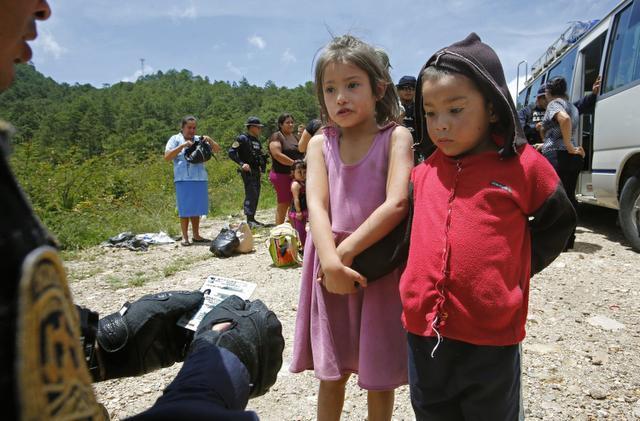
Migrant children deserve protected status
MIAMI – The presence of more than 50,000 children who have crossed the U.S. border in the past two years hardly evokes the hysteria and predictions of chaos and ruin touted by politicians and the anti-immigration lot. That the United States is being overrun by children and that their numbers will create some cataclysmic event is not only morally abhorrent, it is factually erroneous.
To begin, let us put the numbers in perspective. Today the world has more than 50 million refugees and displaced persons. The government of Lebanon currently has over 856,500 refugees in a population of 4.4 million, representing 19.4 percent of its population. Jordan, 641,000 refugees in a population of 7.3 million representing 8.79 percent of its population.
Accepting 60,000 children in a population of 317.2 million — less than two hundred-tenths of 1 percent (.02 percent) of our population — would hardly be straining our resources.
Despite the vast differences in wealth and resources between our country and those of Lebanon, Jordan and even Iran, which currently has one of the world’s largest refugee populations, the end-of-the-world scenarios proffered by some ring of hyperbole.
At a time when we were a more generous, caring nation, we brought 14,000 children into the United States from Cuba under Operation Peter Pan. In 1966, we flew 266,000 Cuban men, women and children into the United States from the Port of Camarioca. At the time, those 266,000 Cubans represented .14 percent of our population, seven times the number of migrants we are talking about today.
The way to tackle this problem is not to deprive children of their right to a fair hearing regarding their fear of returning to their countries of gang violence and poverty.
The proposals to call up retired immigration judges and have “expedited” hearings for these children is nothing more than an offer of sham proceedings in the same way that U.S immigration authorities offered Haitian refugees “expedited hearings” in Miami in the late ’70s and early ’80s. Those expedited hearings were described by U.S. District Judge James Lawrence King as “a systematic program designed to deport [Haitians] irrespective of the merits of their asylum claims.”
Nothing short of that will occur here, and public-spirited lawyers dedicated to treating children fairly will use our legal system to expose the sham. Worse, we will spend billions of dollars creating this unfair system. Such expedited hearings were unfair then and made a mockery of our country’s pledge to be a country of asylum — and will be now.
The president wisely sent Vice President Joe Biden to Guatemala when the issue arose. If we want to address this issue properly, address it at the source of the violence in Guatemala, Honduras and El Salvador. As a powerful northern ally, the United States has the ability, if it has the will, to address these problems in their countries of origin.
At the same time, recognize these helpless children for who they are — victims of violence — and grant them Temporary Protective Status.
Granting TPS has several benefits. The billions of dollars in savings, by canceling sham hearings, can be used to address the root causes of smuggling and gang violence in their countries.
This is not an issue of border security. The children are not being smuggled into the country; they are brought to the border. We need to address the smugglers and the causes that allow the smugglers to thrive. Grant TPS, and go after the smugglers and causes of gang violence.
Ira Kurzban is an adjunct professor of Immigration and Nationality Law at the University of Miami, a partner in the Miami law firm of Kurzban, Kurzban, Weinger, Tetzeli and Pratt, P.A. and the author of “Kurzban’s Immigration Law Sourcebook.”
(From the Miami Herald)

